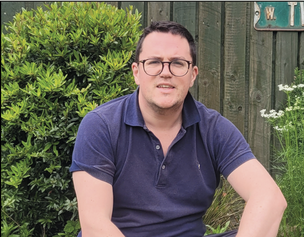A NEW group supporting those recovering from ketamine addiction and run by people who’ve been through the process is beginning to find success.
The Barnsley Ketamine Recovery Group is still in its early stages, but six weeks in has already started to see results.
As the usage of ketamine continues to rise with government figures estimating that usage has more than doubled in England and Wales since 2016 support groups like this are becoming essential to help people avoid addiction.
Dane-John Kemp, a 34-year-old who has been through his own recovery journey, and can now proudly say he is 15 months sober, has been a part of the group since the first few weeks.
He told the Chronicle: “Now that we know more about the dangers of ketamine usage, like it causing issues with your bladder, we need groups like this to help.
“Some of us are going for training so we can be better prepared to help.
“Before rehab I had a really weak bladder I would wet the bed and get constant cramps.
“Now that I’ve been sober for more than a year, there’s no more wetting the bed, but I still have to go to the toilet about 20 times a day.”
The Cudworth lad, who went to rehab in Scarborough after hitting rock bottom, has been using his experiences to help others recover.
In the long-term, he dreams of opening his own rehab centre in Barnsley, but for now is doing what he can to help with this new group.
The BBC reported in February that people as young as 21 were seeking major, risky surgery to treat problems caused by addiction to the drug.
Prolonged ketamine usage affects the lining of the bladder and can shirk it, causing long-term and difficult bladder issues.
This new recovery group is doing their best to help people avoid such issues, and works by assigning a new member to run the session each week, asking them to decide how the next will run.
“It’s all run by people who are in recovery,” Dane-John added.
“Every week we rotate the person in charge during the week they get to think about what they want to say and how they want the group to work.
“It gives them a bit of responsibility and a challenge.
“We’ve already had one or two people stop using as much as they were.
“At the very least, I hope we’re just giving people a space to go and feel safe.
“Even if it’s just for a few hours, then they’re not on the streets and not using for that time.”




























